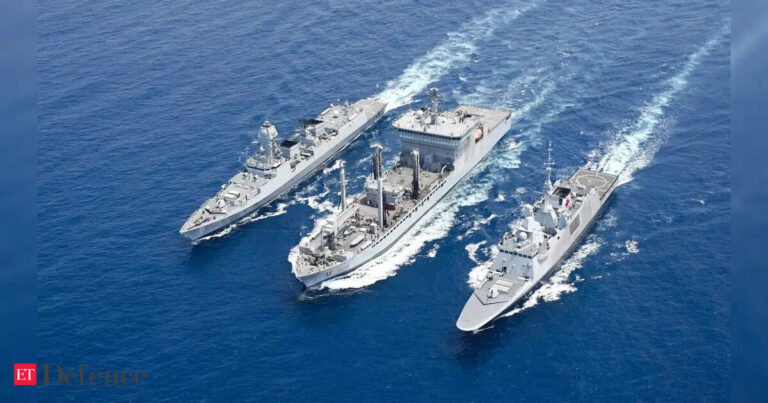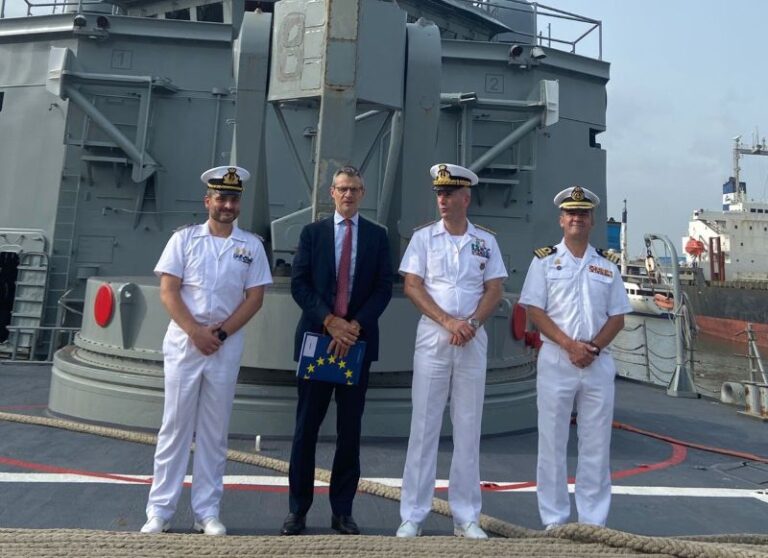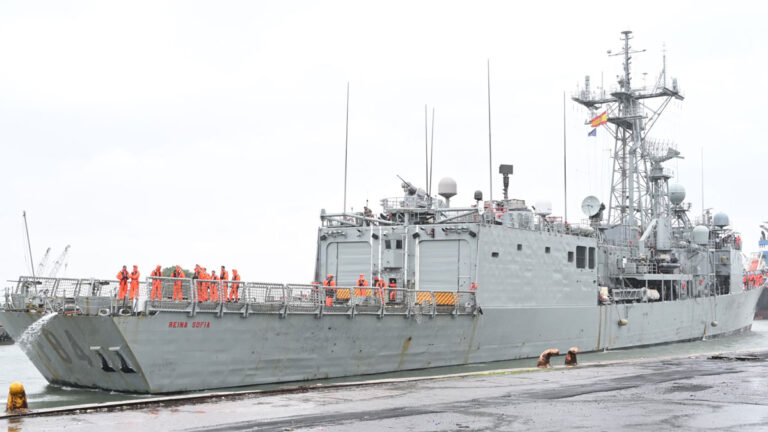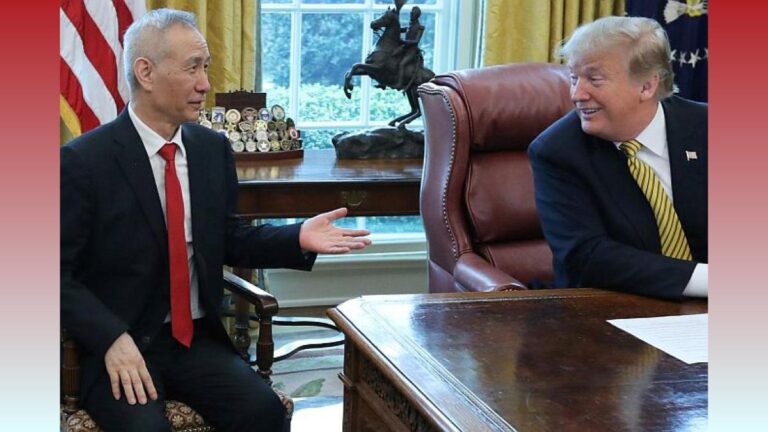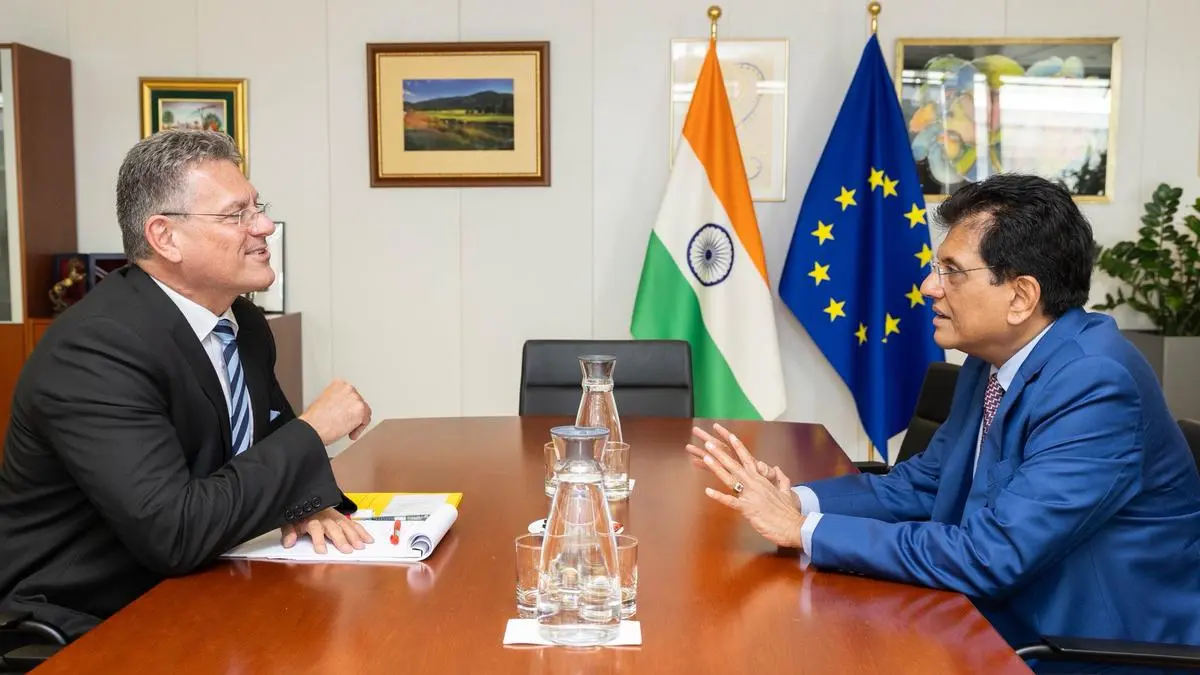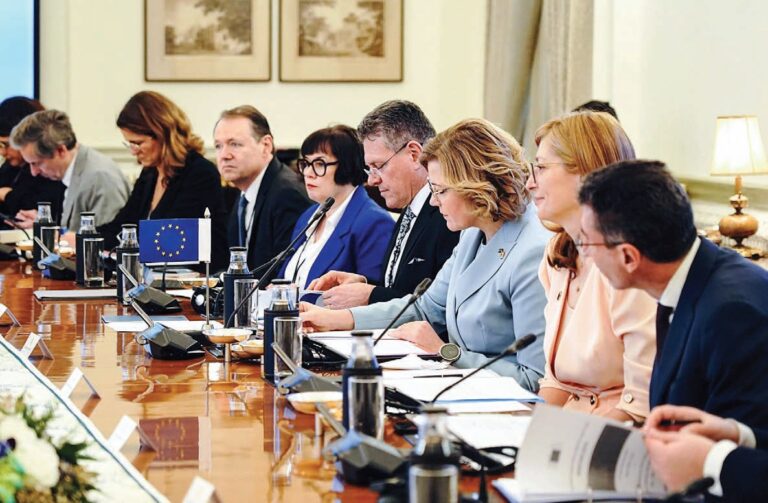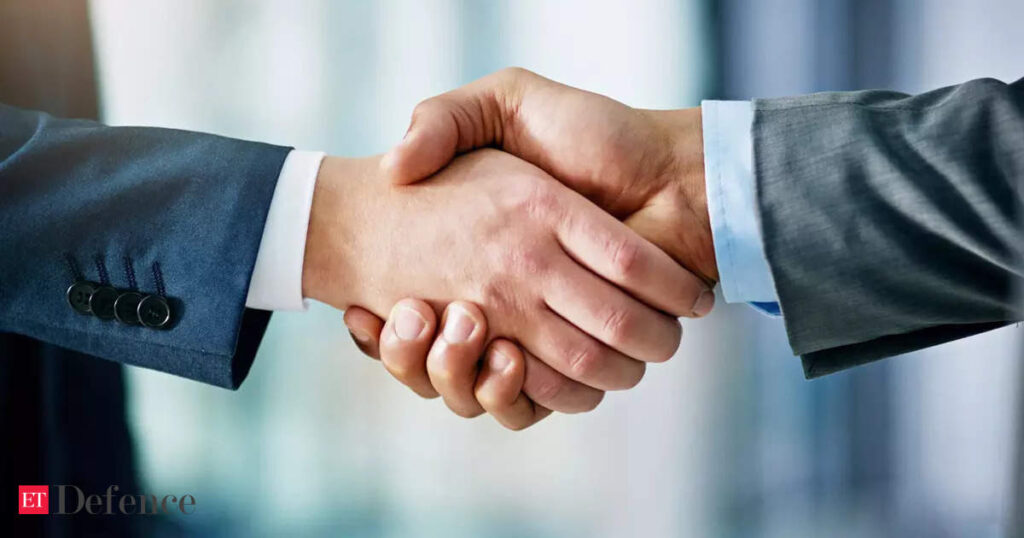
In an address in a reflection group before the talks, the head of the European Commission said that the proposed partnership for security and defense will help the two parties fight against common threats such as cross -border terrorism and attacks against critical infrastructure.
Security should be an essential element of our new strategic partnership with India, she said.
“This is why I can announce that we are exploring a future security and defense partnership with India in the partnership mold that we have with Japan and South Korea,” she said.
“This will help us to intensify our work to counter common threats, whether on cross-border terrorism, maritime security threats, cyber attacks or the new phenomenon we see: attacks on our critical infrastructure,” she said.
Von der Leyen added: “It is not only stability in our respective regions. But it is also a key element to strengthen our economic security and ultimately our prosperity.” In his media declaration after his meeting with Von Der Leyen, Modi described cooperation in India and the growing EU for defense and security as a symbol of “mutual confidence” and that the two parties will advance commitment in the fields of cybersecurity, maritime security and the fight against terrorism. “The two parties agree on the importance of peace, security, stability and prosperity in the Indo-Pacific region,” he said, welcoming the EU’s decision to join the “Indo Pacific Oceans” initiative supported by India.
“We will work together on triangular development projects for sustainable and inclusive development in the Indo-Pacific region and Africa,” he said.
A joint declaration of leaders said that Modi and Von Der Leyen have reaffirmed their commitment to promote a free, open, peaceful and prosperous Indo-Pacific based on international law and mutual respect for sovereignty and the peaceful resolution of disputes.
He said the two parties also undertook to explore trilateral cooperation, especially in Africa and Indo-Pacific.
The two leaders expressed their satisfaction with increasing cooperation in the field of defense and security, including joint exercises and collaboration between the maritime security entities of the Indian Navy and the EU.
The European party welcomed the interest of India to join the projects under permanent structured cooperation of the EU (PESCO) as well as to engage in negotiations for an information security agreement, the press release noted.
He said the leaders have also been committed to exploring a security and defense partnership.
“They reiterated their commitment to international peace and security, including maritime security by attacking traditional and non -traditional threats to protect trade and communication routes.”
“They underlined the need to deepen collaboration in counter-terrorism and to strengthen international cooperation to combat terrorism, including cross-border terrorism and the financing of terrorism in a complete and sustained manner,” he added.
The two leaders also concentrated discussions on the defense and policy industry to explore the opportunities for new initiatives and programs.
Modi and Von Der Leyen also deliberated on the situation in the Middle East and in the war in Ukraine.
“They expressed their support for a fair and lasting peace in Ukraine according to respect for international law, the principles of the Charter of the United Nations and territorial integrity and sovereignty,” said the press release.
The two leaders also reiterated their commitment to the vision of a “solution to two states with Israel and Palestine living side by side in peace and security within recognized borders, in accordance with international law,” he said.
In her speech to the reflection group, the president of the European Commission, plunging into new areas of cooperation in the defense sphere, said that there were many things on which India and the EU can rely.
“For example, the recent collaboration on maritime security. And I am delighted with the interest of India to join industrial defense projects under the permanent structured cooperation of the EU,” she said.
Von Der Leyen said that India is working hard to diversify its military supply and access new capacities and that both parties can help each other to achieve “our security objectives”.
“For example, we can unite their forces where we have technology and expertise, such as cybersecurity, space and drones. It is not only stability in our respective regions,” she said.
“But it is also a key element to strengthen our economic security and ultimately our prosperity. And that is why security should be part of our new strategic partnership with India.
In a related development, the Minister of State in Defense Sanjay Seth had interviews with the EU Commissioner in Defense and the Espace Andrius Kubilius.
They completely discussed bilateral and bilateral EU security cooperation in India and maritime engagement and information sharing in Indo-Pacific, the Ministry of Defense said.
He said that Seth and Kubilius explored the means and means of improving industrial defense cooperation, in particular the participation of European defense companies in common projects and co -production opportunities in India.
They examined the terms of Indian participation in the permanent structured cooperation of the European Union and other European development projects, he said in a statement. Kubilius visits India as part of the Von der Leyen delegation.
